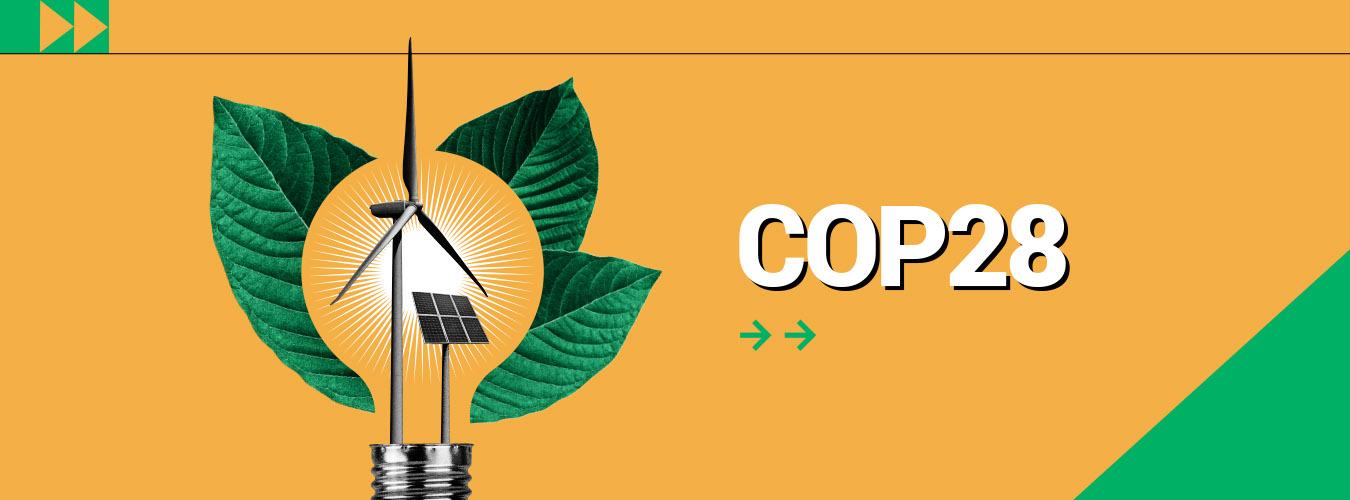Here is how to mention COP28 in your class this week
Image: COP28: Climate action can’t wait | United Nations
The 2023 United Nations Climate Change Conference (COP28) is coming to an end. This week is your last chance to help pupils understand its importance and Earthwatch Education team is here to help you!
As one of our Teach Earth ambassadors, Sophie Hind, told us in a recent conversation, "Making sure that even the youngest children in the school are able to associate this time to a huge global event is really important.” Sophie is using the pre-established curriculum topic of 'festivals' to discuss not only of Diwali, Christmas or Hannukah taking place this time of the year but also "the festival of Earth" so that pupils are aware of it taking place every year, too.
Devote 5 minutes of your lesson and use our simple prompts below to help pupils become more aware of the two main COP28 take away messages:
Loss and damage fund agreed - important acknowledgement of the losses that communities around the world are already experiencing because of climate change
Nearly every day we need to tell our pupils to be careful with the equipment they are using in school. We know the costs of the repairs are high so we do everything to prevent it. Have you asked your pupils what happens when a chair breaks, calculator battery runs out or a pen stops working? We need money to repair it and replace it. This week when you remind your pupils to be mindful of how they engage with their equipment, take 5 minutes at the end of the lesson to link it to the importance of preventing and having funds to repair damages that happen because we are not being careful with our planet resources.
Fossil fuel phase-out - crucial decisions about a gradual plan to end the extraction and production of coal, oil and gas necessary to keep global warming rate to below 1.5 C
This is the season when most of us turn on the heating. We also do it in the classroom as our pupils thermal comfort is simply a basic requirement for a good learning experience. The conversation about the weather, being too warm or too cold take place daily so why not put them in a spotlight this week? Ask your pupils about how they stay warm this winter and where does the energy come from? Challenge them to think what would happen if we decided to stop heating our building in the next 3 years because we use harmful fossil fuels - this is an important decision being made at the global level. What alternatives are there? Can we get them in our school? What else can help us keep warm? Think about building insulation, having a hot cup of tea, warmer clothes.
Making difficult terms and world events relatable to our every day life is one of the most valuable lesson we can give to our pupils.
As Sophie tells us, “What's really special about schools is that they models real-life situations. Like COP28, schools have got hundreds of people coming in every day to represent their home, their community and their nation and that's really powerful. It’s a place for sharing different ideas and views and building a purposeful drive together. If we help children to see school in that way, it would change their perspective on it and what they do together.”
